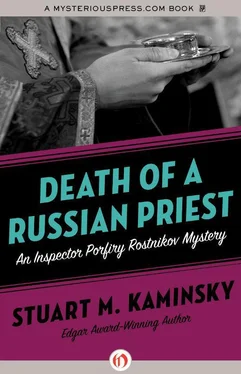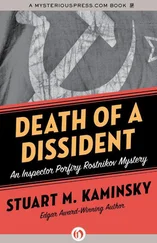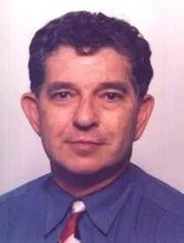Stuart Kaminsky - Death Of A Russian Priest
Здесь есть возможность читать онлайн «Stuart Kaminsky - Death Of A Russian Priest» весь текст электронной книги совершенно бесплатно (целиком полную версию без сокращений). В некоторых случаях можно слушать аудио, скачать через торрент в формате fb2 и присутствует краткое содержание. Год выпуска: 2012, Жанр: Полицейский детектив, на английском языке. Описание произведения, (предисловие) а так же отзывы посетителей доступны на портале библиотеки ЛибКат.
- Название:Death Of A Russian Priest
- Автор:
- Жанр:
- Год:2012
- ISBN:нет данных
- Рейтинг книги:3 / 5. Голосов: 1
-
Избранное:Добавить в избранное
- Отзывы:
-
Ваша оценка:
- 60
- 1
- 2
- 3
- 4
- 5
Death Of A Russian Priest: краткое содержание, описание и аннотация
Предлагаем к чтению аннотацию, описание, краткое содержание или предисловие (зависит от того, что написал сам автор книги «Death Of A Russian Priest»). Если вы не нашли необходимую информацию о книге — напишите в комментариях, мы постараемся отыскать её.
Death Of A Russian Priest — читать онлайн бесплатно полную книгу (весь текст) целиком
Ниже представлен текст книги, разбитый по страницам. Система сохранения места последней прочитанной страницы, позволяет с удобством читать онлайн бесплатно книгу «Death Of A Russian Priest», без необходимости каждый раз заново искать на чём Вы остановились. Поставьте закладку, и сможете в любой момент перейти на страницу, на которой закончили чтение.
Интервал:
Закладка:
“Yes.” The colonel sighed. “It was Lenin, not Marx. You did not fall into my little trap. Porfiry Petrovich,” he now said, “you are to put aside whatever you are working on and take up an emergency case. It involves Prahvahslahvnahyah tsehrkaf, the Orthodox Church.”
It had long been believed by all who attended these morning meetings that the man known as the Washtub missed not a word, not a nuance. However, for the past few minutes, Rostnikov had been paying little attention to the Gray Wolfhound. He had been trying to remember precisely the small one-bedroom apartment in which he had grown up on Leningrad Prospekt. After his conversation with Galina Panishkoya that morning it seemed a very important task. The house was long gone, replaced by a poured-concrete Stalinist high rise with frightened oblong window eyes.
His bed had been right by the window in his parents’ room. He had drawn the bed carefully with his pencil, right down to the remembered pattern of faded flowers on the quilt. But what about the sofa, the walls, the chairs? Had there been three? He could remember only two vividly, but a third chair, with a high back and a carving …
“Porfiry Petrovich,” the Wolfhound repeated, and with a sigh Inspector Rostnikov put down his pen and looked up at the waiting colonel.
The colonel continued, “A case has come to us regarding an important church matter which will soon be brought to the attention of the public.” He paused, prepared to stun his staff with the name of the infamous priest.
“Merhum,” said Rostnikov. “Father Vasili Merhum. He was murdered yesterday in the woods of Arkush. Ax blows to the front and to the back of the head. He managed to crawl to his nearby cottage. There he muttered a few words to his housekeeper, an old nun.”
The meeting was on the verge of becoming a disaster, but with military genius the Gray Wolfhound smiled. He had perfect strong teeth. “And do you know what those words were?” he asked. He did not know the words himself, nor had he known that words had been muttered, but he had been assured by his superiors that the death of the priest had been kept quiet, that the town of Arkush had been effectively sealed, that-
“Sister, Oleg must forgive me,” said Karpo.
Major Grigorovich placed his pencil neatly atop the pad before him. The battle with Rostnikov was definitely lost for the day. It was time to lay down his arms and prepare for another tomorrow. He would quietly explore the mystery of how Rostnikov and his men had learned of the murder.
He suspected that the information had come to Karpo from Kosnitsov, the forensic scientist who worked in the bowels of Petrovka. Kosnitsov would have already examined samples of the victim’s hair and blood and bits of his clothing. He would have relayed his findings to Karpo and Rostnikov.
“Sister Oleg,” said the colonel.
“His housekeeper was a nun,” explained Rostnikov. “It was into her arms that he crawled and in her arms he died. “
“Her name is Oleg?” Pankov asked incredulously.
The colonel gave his assistant an imperious look of pity and ignored his question. “You will go to Arkush immediately,” he said to Rostnikov. “You and Investigator Karpo. Father Merhum was, as you all know, well known for his frankness. It is particularly awkward at this crucial moment in our history that such a tragedy should take place. Father Merhum was scheduled to make a highly critical speech here in Moscow. The speech, which attacks those at the highest level, is in the hands of the foreign press. President Yeltsin himself will tomorrow issue the following statement …”
Snitkonoy looked at Rostnikov to see if he also knew this, but Porfiry Petrovich’s face betrayed nothing.
The colonel went to his desk, lifted a spotless manila folder, removed a typed sheet and read: “The death of this innocent, revered citizen is a tragedy we must all feel. We shall spare no effort in finding the person or persons responsible for killing this respected figure.’
“The honor of this investigation, the confidence of the president himself, has been granted to us,” said the Wolfhound, gently returning the sheet to the folder and placing the folder even more gently back on his dark well-polished desk.
Which means, thought Rostnikov, that if the killer is not found, it will be considered a government cover-up. If the killer is found, it will be accepted as a frame-up. The situation was a familiar one. A change of flags did not change a national psyche.
“Pankov has a complete file for you,” the colonel said. “You may take a car. Do you have any questions? Do you have any ideas with which to begin?”
“Oleg,” said Inspector Rostnikov, looking down at the drawing he had made of his family’s house.
The colonel was seated, his hands flat on the surface of his desk. He said, “It is likely the priest was simply babbling. However, he may well have been identifying his attacker. Perhaps, in his confusion, someone named Oleg. Perhaps the sister of someone named Oleg.”
Rostnikov stood, steadying himself with both hands on the desk to keep his too-long-motionless leg from betraying him. “Very likely,” he agreed. “Under the circumstances it is probably best that I take immediate action.”
The colonel looked at Rostnikov, as did Major Grigorovich and Pankov. Only Emil Karpo, who also rose silently, did not look at him.
Major Grigorovich reached for the pencil he had set down only moments earlier. The battle, it seemed, was not completely lost. It was possible that Rostnikov’s mission would result in total disaster.
THREE
Three miles away from Petrovka, near the Arbat pedestrian mall, Special Section investigators Sasha Tkach and Elena Timofeyeya were waiting in line.
Lines are a way of life in Russia. There are housewives and house husbands, babushkas and grandfathers, who spend their lives in lines. People go mad in lines, come to the major decisions of their lives in lines, get their principal education and entertainment from the books they read in lines, and make lifelong friends and enemies in lines.
In this particular line there were eight people ahead of Sasha to buy pizza from the big white truck. Though few could afford it, pizza had replaced McDonald’s burgers as the new rage in Moscow.
Sasha’s ears were cold and he didn’t particularly want to try pizza, though Elena, who had spent two years studying English and English history in Boston, said it was “passable” pizza, nothing like in the state-run shops, where it tasted like baked pencil shavings. Nor was it anything like the pizza in the Pizza Hut across from the Intourist Hotel. But, she insisted, it was not bad.
Sasha did not really care about the quality of the pizza. He could afford neither pizza nor anything else on the Arbat now that the price of everything had gone up with Yeltsin’s free-market insanity. He had a wife, a child, another on the way, a mother. Elena had no one to support but herself and she lived with her aunt, who had, no doubt, a comfortable government pension. Elena could afford pizzas.
Now that they were approaching the open window from which the pizzas were dispensed, Sasha could smell the dough and the cheese. It was a warm smell of something in the past and it made him even more irritable. “We should be at the Nikolai,” he grumbled, without looking at his new partner.
They had already been to one restaurant and a rock-and-roll club. No one remembered the Arab girl at the restaurant. No one had been at the rock-and-roll club so early in the morning. The Nikolai Café looked like their best chance, if something was to be accomplished today.
Sasha shifted his weight and decided that there were many reasons to be miserable. For one thing he would be thirty years old in three days, which did not please him. Nor did the prospect of the birthday party Rostnikov and his wife were preparing. He did not want to be thirty. He did not look or feel thirty. He looked no different than he had for the past six or seven years, and most people took him for no more than twenty-three. He was, he knew, reasonably good-looking, if a bit thin. His straight blond hair frequently fell over his eyes and he had an engaging habit of throwing his head back to clear his vision. He also had a large space between his front upper teeth, which seemed to bring out the maternal instinct in most women. Another thing that contributed to Sasha’s misery was that the woman who stood with him seemed not only immune to his boyish charm but indifferent to almost everything about him. She was a year or two older than he, granted, but he was the one with experience.
Читать дальшеИнтервал:
Закладка:
Похожие книги на «Death Of A Russian Priest»
Представляем Вашему вниманию похожие книги на «Death Of A Russian Priest» списком для выбора. Мы отобрали схожую по названию и смыслу литературу в надежде предоставить читателям больше вариантов отыскать новые, интересные, ещё непрочитанные произведения.
Обсуждение, отзывы о книге «Death Of A Russian Priest» и просто собственные мнения читателей. Оставьте ваши комментарии, напишите, что Вы думаете о произведении, его смысле или главных героях. Укажите что конкретно понравилось, а что нет, и почему Вы так считаете.












